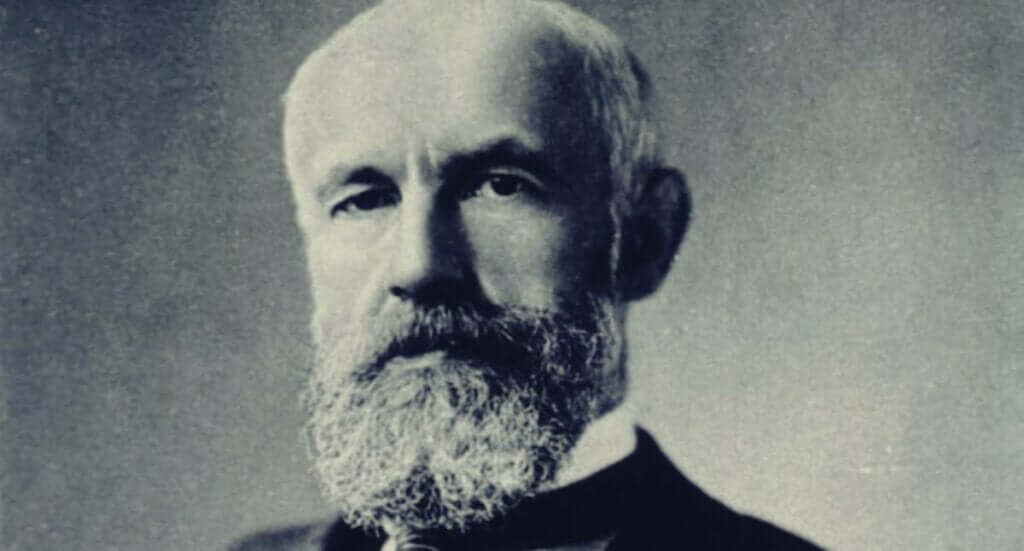He studied philosophy and medicine. An introspective man, very dedicated to meditation and study, one of his goals was to separate psychology from philosophy and give it space, turn it into science and prove that he was a branch of his own knowledge. He was born in Germany in 1832 and was called Wilhelm Wundt.
It is curious to see how the name of this outstanding scientist and cornerstone in the field of psychology goes unnoticed by the general public, if we asked someone right now who is the most decisive figure in this science, there would certainly be names like Sigmund Freud. , Carl Jung, William James or Albert Ellis; however, Wundt studied concepts as a person that would later be fundamental to understanding this area of human knowledge and behavior.
- Besides.
- If there was one thing that distinguished Wilhelm Wundt.
- It was his determination.
- Did you want to understand what we call Consciousness? That’s how it really was.
- And he also aspired to understand what the laws of the mind meant to him.
- For this he did what others had not yet thought: to create the first laboratory dedicated exclusively to psychology.
If we ask ourselves who is the father of psychology, we have to go back in time, we will be in Germany in 1857, just when Wilhelm Wundt obtained his medical degree at the University of Heidelberg with the title of cum laude, being the best of his kind. Some time later he began his internship with Hermann von Helmholtz, known for his great contributions in the field of physiology.
However, the relations between Helmholtz and Wilhelm Wundt were not particularly good, at this point he ended up going to the University of Leipzig to study philosophy and took over the psychology folder of this faculty. Now, to understand Wundt’s importance, we must first emphasize an important aspect. Until then, psychology was considered part of philosophy.
At the time, the classical ideas inherited from Plato and Aristotle were still rooted in the scientific community. Were those in which, in defining what the mind was, terminologies like?Soul? Or “spirit. ” Later Descartes will arrive, who, disconnecting from these concepts, separated the?Thought?res cogitans?matter or body.
Gradually, understanding the psychological aspects became independent from the philosophical tradition, although this great and decisive step was given by Wilhelm Wundt.
If we ask ourselves who the father of psychology is, we will say that he was someone capable of asking questions and seeking answers for himself, something that apparently seems easy to us was not at all at that time when everything related to psychology was suspended. for the world of ideas, abstraction and reflection.
Wilhelm Wundt wanted evidence based on experimentation; wanted data, verifiable and verifiable evidence to present theories. Thus, one of the issues that guided him most throughout his academic and professional life was understanding what governs the human will. He called this psychological kingdom of will, choice, and purpose.
Why do we do what we do?Wundt was a strong supporter of the scientific perspective; therefore, all these processes that define psychology could be studied and studied in the laboratory.
Wilhelm Wundt opened the first institute of experimental psychology in 1879, created it at the University of Leipzig, a fact that in itself is considered the beginning of modern psychology, all the research and techniques learned during his years in the service of physiology with Hermann von Helmholtz was of great use to him.
This laboratory began to arouse the interest of other doctors and also students from German universities, to the point that many became an integral part of their famous experiments, underwent various stimuli and then had to explain their feelings and thoughts. data were measured objectively and rigorously.
These analyses, as accurate as those of a chemist, provided valuable data to better understand mental processes, consciousness, will, etc.
One of his most important books was Fundamentals of Physiological Psychology and Popular Psychology, however, his most interesting legacy is found in the reports of his more than 100 experiments, published as philosophische Studien, were 21 years of his life during which he went further and laid the foundations for psychology.
He also trained psychologists from the new generations, personalities who would later talk about conductism, such as Watson, Pavlov and Skinner. All would continue with experimental research and this clearly objective approach.
In conclusion, let us remember his name and remember the figure of Wilhelm Wundt as that of the curious man who tried to transform psychology into science.

